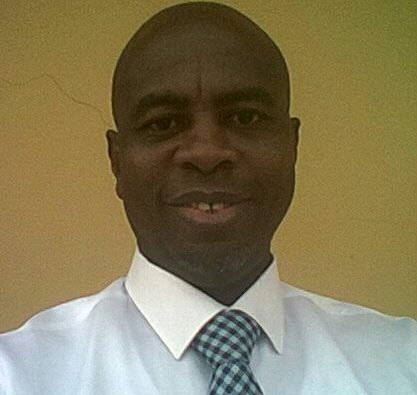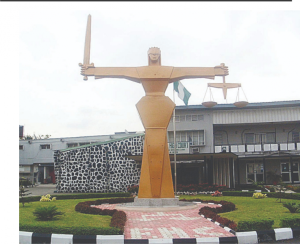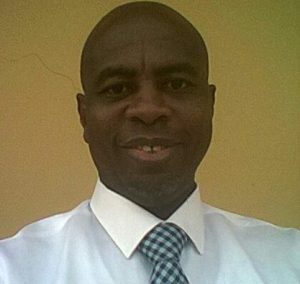
Appreciated from its experiential and sociological dimensions, illusion signifies the occurrence of an erroneous or misjudged perception or understanding of an experience. It is the other side of truth or reality, especially a faulty reality that that emanates from poor judgement, prejudice, or a laid back mental attitude. Modern history is replete with examples of countries that had the illusion of becoming prosperous postcolonial climates simply by default. In this utopian frame, it is assumed that some other powers have paid the vicarious price for our development; so we can laze around and hope that the mechanisms of state would produce the prosperity we desire. But history has shown otherwise.
Befuddled by state and systemic failures resulting from miscalculations and, in very many cases, the greed and excesses of political leaders, many African states are paying the price of living in the illusion that post-independence development was a given. In some cases, especially in nations with many ethnic groups, a culture of entitlement had replaced such values as deferred gratification, hence the failure to establish a purpose-built economy positioned for sustainable growth. While an illusion is a false belief, an entitlement mentality describes a state of mind in which an individual or a people assume that privileges are the same as rights. According to Luanne Ramsey of the Rosen Group, ‘workers with an entitlement mentality are characterised by a persistent “What have you done for me lately?” attitude,’ such that even when things are out of balance, there is a resounding feeling of expectation for more. Invariably, this creates an overindulgent populace, or an overindulged workforce at the business and organisational levels.
The situation in post-independence Nigeria has not been far-off from these theoretical scenarios. From independence, Nigeria, in terms of her economic fortunes, had prospered, progressed and showed good prospects of a brilliant future, with more than a few new industries either in process of being established, or already in operation. Perhaps, with the prognosis of these socioeconomic prospects, the nation and its peoples grew slipshod, withdrawing into cocoons of entitlement. Each state of the federation became a close watcher of the economic wealth to access its share of the ‘national cake.’ This of course is one of the tragic consequences of being a rentier state.
In spite of the ever-present economic challenges of the nation, both the leaders and their peoples are cooped up in collective impatience and alacrity in the competition for the finite resources. The trend of contesting for “rightful shares” of “free money” from the federation account has held sway over the whole nation, and for many decades Nigerians leaders and peoples would rather wait to devour the last pieces of cake that are available at any time, than follow the hard, tortuous path to real development of the economic commonwealth for the sustainable benefit of the nation.
The pendulum of agitation based on entitlement has always oscillated within the Nigerian polity depending on the state or political zone whose “rights and privileges” are threatened. All sections of Nigeria have made an unfortunate and unpleasant contribution to this malaise, even well into recent times.
For the Yoruba ethnic group, the reverberations of separatism came in diverse forms and manners. These ranged from both direct and indirect calls for an Oduduwa Republic, to the championing of calls for a Sovereign National Conference with the view to ‘decide the fate’ of the federating units, and whether Nigeria will continue as one entity or not. The Afenifere, the Oodua People’s Congress (OPC), the Yoruba Appraisal Forum, and several others have pursued similar pro-ethnic agendas over many years. The irony has been that when there are bounties of federal entitlements flowing in their direction, the Yoruba political class has adopted a disposition that is more accommodating of the nation’s shortcomings and foibles. So the cries for restructuring have become quite feeble, in fact almost dead, in recent years.
The North has itself been a champion of the entitlement syndrome for several decades, and this became so strongly demonstrated upon the untimely demise of President Umaru Musa Yar’adua. President Buhari had himself come to power riding the horse of northern entitlement. The Jonathan presidency was largely unsettled and turbulent because he was perceived by a critical section of the north as an impostor, notwithstanding the provisions of the Nigerian Constitution. That presidency, however, raised the Ijaws to the elevated status of princes and kings in several capital cities in the country.
The Niger Delta has been a hotbed of entitlement discourses and activism in the last twenty years. The illustration would range from the festering idea of a ‘Niger Delta Republic’ to the demand for ‘resource control’ and the rise of militancy and insurgency that literally crippled the Nigerian economy. The Federal Government’s Amnesty Programme offered some lasting appeasement, and the creation of the Niger Delta Development Commission (NDDC) was a development strategy that should have transformed the region into a Dubai. But entitlement has often connoted the pillaging of the commonwealth, not only in the South-south but in all parts of the country.
For the Igbos, the quest for entitlement has in recent years metamorphosed into a growing agitation for a Biafran country. The emergence and activities of groups such as the Movement for the Actualisation of the State of Biafra (MASOB) and the Indigenous Peoples of Biafra (IPOB) indicate quite some vigour around the movement. IPOB had adopted violent tactics in pursuing some of its agenda, and its leader, Nnamdi Kanu, was detained – based on charges that included treason and the operation of a pirate Radio Biafra – for two years by the current Buhari government. Though mostly peopled by young Igbo men and women who never experienced the Civil War but are enamoured of Biafra, the group has enjoyed the support of a critical section of the Igbo intelligentsia, the traditional leaders and the political class. This group of leaders offers direction to a huge number of gullible masses. Governors, lawmakers and other political leaders of the Southeast have made significant material and financial contributions to support the activities of IPOB, and invariably the quest for a state of Biafra.
Though proscribed, IPOB has remained active in several ways and has not changed its secessionist agenda. Kanu’s claim that the mandate to restore Biafra is from heaven places IPOB on the same trajectory of a false and destructive religious ideology, like Boko Haram. Nnamdi Kanu and his lieutenants keep firing trademark propaganda darts at the Nigerian nation on a daily basis. The apex Igbo socio-cultural group, Ohanaeze Ndigbo, have reportedly settled its differences with the proscribed IPOB, and Chief Nnia Nwodo, leader of Ohanaeze, recently stated publicly that the two groups have agreed to work together. Working together to make the Southeast a haven of real development that would stir the envy of the other geopolitical zones would be a great thing for Nigeria, and indeed for Africa. Or is it work together to access a bigger share of the national cake? Or work together to pursue the one critical idea of an Igbo President in Nigeria? Or work together to break away from Nigeria and become an El Dorado nation? There is a costly alternation between several realities, and some of these centre around existing conditions of entitlement.
Without doubt, there is a widespread feeling of alienation and dissatisfaction among the various constituents within the Nigerian federation, and this derives largely from how much people are able to grab from the centre. We think so much of the centre that we have refused to develop our states and local governments. The failure to develop the Southeast and to make it as prosperous as Israel or Japan is not because the Igbos are still a part of Nigeria, and have not received as much as they should from the centre. It is because their leaders are just the same as leaders in other parts of the country, south and north. They are, like all of us, the product of the entitlement syndrome that has entrenched a culture of rotational pillaging of the nation’s resources. Unfortunately, that pillaging has never translated into real community development in any region of the country.
Read Also: About us
The growing expression of entitlement today is with the Igbo, and the emerging perceptions may improve or diminish their chances in the current political manoeuvrings and stratagems.
While an entitlement mentality is a despicable syndrome which we as a people must rise above, there are questions that should be answered in the context of festering political realities. The Igbos seem to bear in their hands two swords at the same time – an agitation for a state of Biafran on the right, and the quest for an Igbo presidency on the left. How are the nuances of ethics and the vagaries of entitlement coloured by the contradictions of a secessionist agenda? Or could all of these at best be symptomatic of just an entitlement syndrome, and the illusion of it in a clear sense? Understandably, in the absence of a true referendum, it may be difficult to ascertain whether the ‘talking leaders’ of an ethnic group actually stand for the true yearnings of the people they claim to represent. But the signals are good enough for the question, what exactly do the Igbos want?

Udu Yakubu

